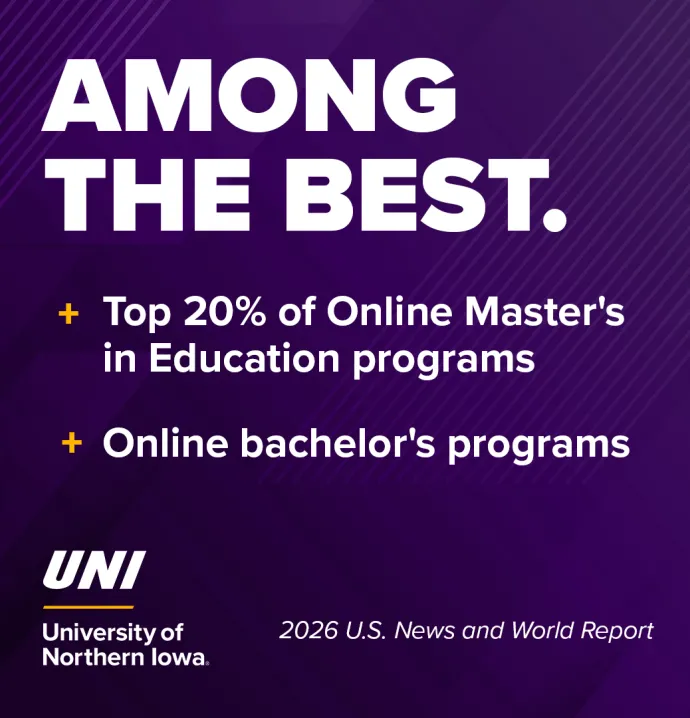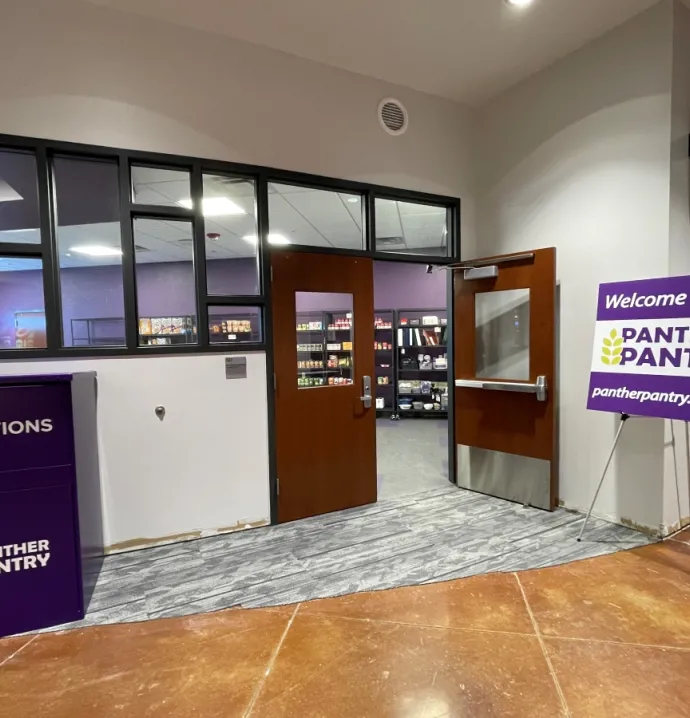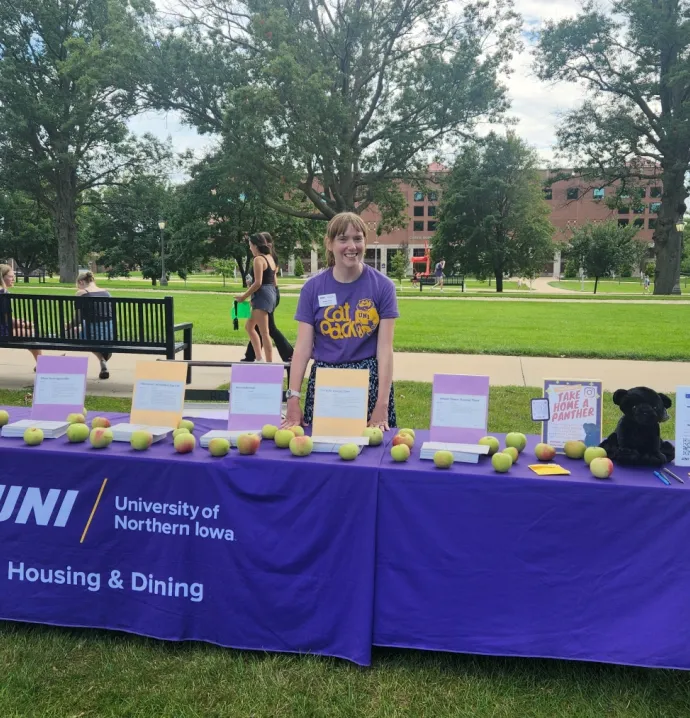UNI President outlines vision for university's future
UNI President outlines vision for university's future
The enrollment challenges facing colleges throughout the state present a unique opportunity for the University of Northern Iowa to distinguish itself from the competition and lay the foundation to better serve the needs of students and the state, said UNI President Mark A. Nook in his annual President’s Address.
Nook’s address before faculty and staff outlined key strategic initiatives and investments the campus will be implementing over the next fiscal year to help attract more students while equipping those students for success beyond UNI.
“I look forward to this year and working with you on the challenges we face, some of which may look like unsolvable problems but are really opportunities to make a difference in our students’ lives,” Nook said.
Nook outlined a number of strategies to make UNI’s education more affordable and accessible, while maintaining its high academic standards.
To make education more accessible, Nook highlighted several programs focused on serving diverse and underrepresented populations, programs made all the more necessary in light of the growing percentage of high school students who are racial and ethnic minorities.
The Panther Promise Program last year brought almost 2,150 students from 33 schools to campus to learn about UNI and the college-going process, and the effort has already resulted in an uptick in applications for the fall 2020 term.
In addition to the PPP, the UNI Center for Urban Education annually serves more than 17,000 individuals from historically underserved populations, providing tutoring, ACT preparation, and mentoring and guidance to help them achieve their academic, personal and professional goals.
In light of these efforts, UNI received the Cedar Valley’s Economic Inclusion Partnership award, which recognizes organizations that have made significant achievements in championing economic inclusion and diversity. UNI-CUE also was given the Heritage Legacy Award by I’ll Make Me a World in Iowa, a diverse collection of Iowans who highlight African-American arts, culture and contributions through education, awareness and preservation.
“As a campus, we’ve made a commitment to be engaged in improving our diversity and understanding that the more diverse we are, the better we can serve our students,” Nook said.
Other recruitment efforts Nook noted were greater community college outreach, a more integrated marketing and communication effort, and a drive to improve UNI’s market share in neighboring states.
“We’ve got to recognize that this is not an unsolvable problem; it’s a great opportunity,” Nook said. “We are looking at what we can do to distinguish ourselves and get our enrollment up. It will take time. We won’t solve this problem in a year. But we can lay a framework and get ahead of it so we can come back stronger.”
While Nook said enrollment is projected to decline in the 2019-20 academic term, he said the issue is not unique to UNI, noting that college enrollment statewide dropped 18 percent from 2010 to 2017.
“It’s not something that is just a challenge for us. It’s a challenge for higher education,” Nook said. “As the economy gets hot and unemployment rates drop, enrollment will follow that trend. We have seen that.”
To address affordability, UNI this year utilized a $4 million boost to its general fund from the state legislature to prevent a tuition increase realized at other public universities in the state. Nook said UNI will continue to push for additional funding from the state to keep its tuition flat in the years to come.
Currently, UNI’s tuition is an average of $515 less than the costs for Iowa and Iowa State. Nook said the goal is to be comparable to a selection of other regional universities in the Midwest and Northeast, which had an average, full-time tuition that was almost $2,500 lower than their state’s research institutions.
“This is an extremely competitive market right now, and it’s very important we have our price point low,” Nook said. “We’re going to continue trying to hold our tuition as flat as possible and get some separation and be more competitive.”
UNI also received a $1.5 million grant from the Iowa Economic Development Authority’s Strategic Infrastructure Program that will fund expansion to UNI’s Metal Casting Center. Additionally, the state approved a $400,000 increase in economic development funding for an expansion to the Advanced Manufacturing Center.
On the fundraising side, Nook noted that fundraising increased by $5.7 million over last year and is up 50 percent since 2017.




